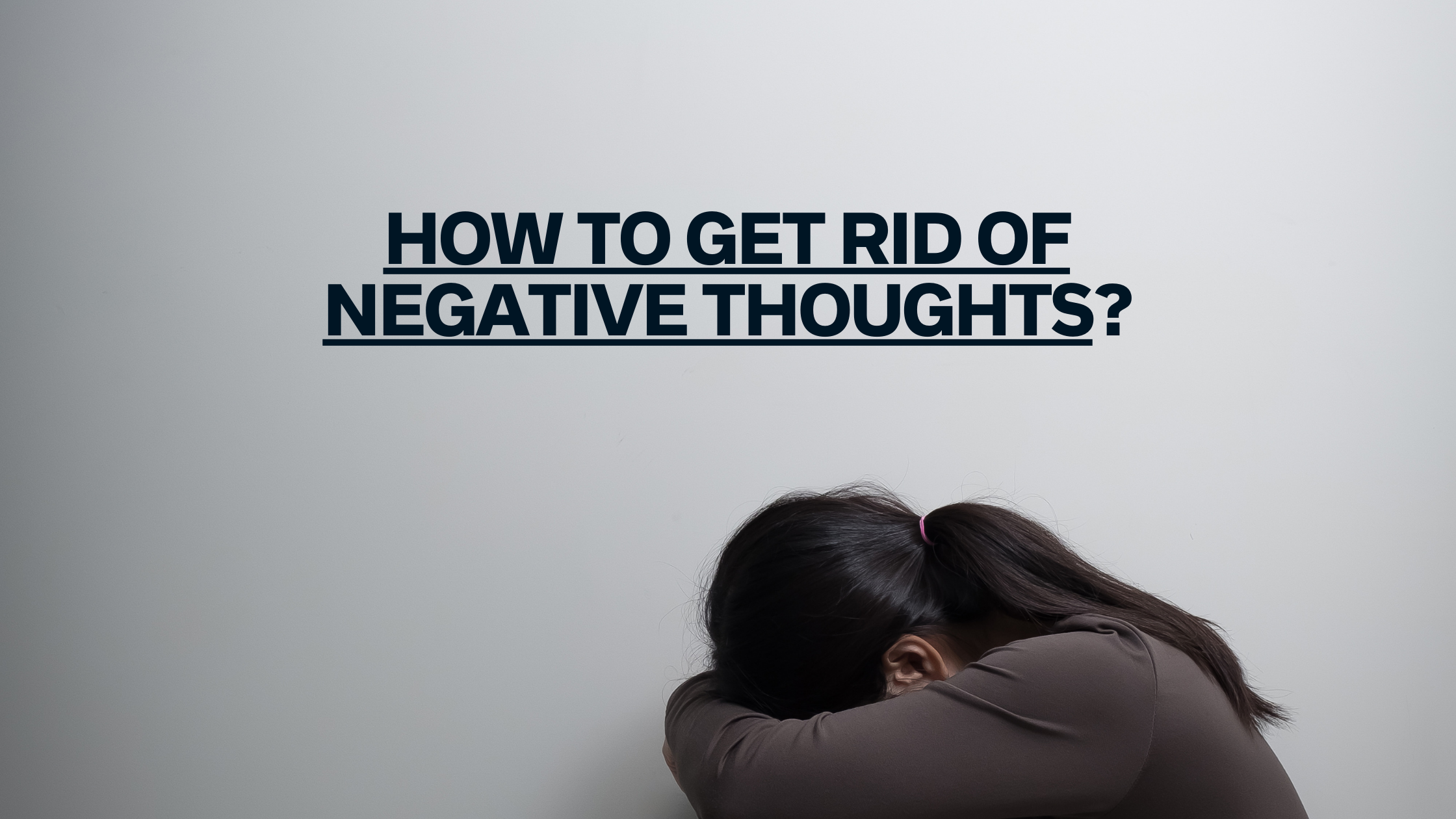How to Get Rid of Negative Thought: Negative thought are like uninvited guests, staying in our minds and affecting our overall well-being. Whether it’s self-doubt, worry, or fear, all these negative thoughts can take a toll on our mental health. However, the good news is that with the rights strategies, it is feasible to shift our mindset and develop a more positive perspective on life. In this article, we will talk about different techniques to help you get rid of negative thoughts and encourage a healthier mental state.
Also Read:
How to Get Rid of Negative Thought
Identifying Negative Thoughts
Before we can effectively handle negative thoughts, it’s important to recognize and understand them. Take some time out in a day and observe your thought patterns. Are you continuously thinking about the worst-case scenario? Are you constantly criticizing yourself? Recognizing these negative thoughts is the first step towards handling and overcoming them.
Understanding the root cause of negative thoughts can be instructive. It might be tied to past experiences, societal pressures, or personal insecurities. Recognizing the source of negative thoughts allows you to manage the underlying problems and create targeted plans for change.
Challenge Negative Thought
Once you have recognized negative thoughts, it’s important to challenge their reality. Ask yourself if there is proof supporting such thoughts or if they are simply an outcome of irrational fears. By questioning the rightfulness of negative thoughts, you can start to break their hold on your mindset. Developing a habit of cognitive restructuring includes actively replacing negative thoughts with more balanced and realistic ones. This process needs patience and practice but is a powerful tool for reshaping your perception of yourself and the world around you.
Practice Mindfulness
Mindfulness includes being fully present in the moment. Techniques such as meditation, deep breathing, and body scanning can help develop mindfulness. When negative thoughts appear, practicing mindfulness allows you to observe them without getting involved in their emotional grip. This separation can deliver transparency and ease the effect of negative thinking.
Mindfulness isn’t just a short-term solution; it’s a skill that can be developed over time. Regular practice improves your capability to stay present, encouraging a mental state less sensitive to the intrusion of negative thoughts.
Cultivate a Positive Environment
The environment we surround ourselves with plays an important role in our mental well-being. Assess your surroundings, both at home and at work. Surround yourself with positive things, be it supportive friends, uplifting quotes, or inspiring artwork. Creating a positive atmosphere can add to a more optimistic mindset.
Consider decluttering your physical space as well as your digital space. A clean and organized environment can have a positive impact on your mental state, making it easier to concentrate on productive thoughts instead of being overwhelmed by chaos.
Set Realistic Goals
Unrealistic expectations can lead to feelings of failure and frustration, fueling negative thoughts. Set attainable and realistic goals for yourself. Celebrate small successes, and recognize your progress. By setting realistic expectations, you can build confidence and decrease the likelihood of negative thoughts taking root.
Break down larger goals into smaller, more manageable tasks. This not only makes the journey less daunting but also permits you to celebrate achievements along the way, strengthening a positive mindset.
Challenge Perfectionism
Perfectionism often goes hand-in-hand with negative thinking. Understand that perfection is an unrealistic standard, and mistakes are a natural part of life. Adopt the concept of “good enough” and identify that flaws don’t define your worth. This shift in mindset can relieve the pressure that contributes to negative thinking.
Perfectionism is usually embedded in the fear of failure or judgment. By reframing failure as an opportunity for growth, you can reduce the power of perfectionism and the negative thoughts associated with it.
Practice Positive Affirmations
Positive affirmations are strong words that can reshape your mindset. Replace negative thoughts with positive affirmations that strengthen your strengths and abilities. Repeat these affirmations regularly, particularly during challenging times, to create a more positive inner talk.
Craft personalized claims that echo your goals and values. The more specific and meaningful they are to you, the more practical they will be in counteracting negative thoughts.
Focus on Gratitude
Developing a sense of gratitude can be a game-changer in fighting negative thoughts. Regularly reflect on the things you are grateful for in your life. This practice shifts your direction from what’s lacking to what’s generous, encouraging a more positive attitude.
Consider keeping a gratitude journal where you note down three things you’re thankful for each day. This simple practice can train your mind to concentrate on the positive aspects of life, decreasing the room for negative thoughts to succeed.
Engage in Physical Activity
Physical activity has been confirmed to have positive effects on mental health. Exercise releases endorphins, the body’s natural mood boosters. Include regular physical activity in your routine, whether it’s walking, jogging, yoga, or any other form of exercise that you enjoy.
Find activities that bring you joy and make them a constant part of your schedule. The combination of physical movement and the release of endorphins can greatly contribute to a more positive and balanced mindset.
Seek Professional Help
If negative thoughts continue and greatly impact your daily life, seeking the advice of a mental health professional is essential. Therapists can provide strategies tailored to your personal needs, helping you navigate and overcome constant negative thinking patterns.
Therapy offers a safe space to examine the root causes of negative thoughts and develop coping tools. A trained professional can provide useful insights and support as you work towards a more positive and resilient mindset.








